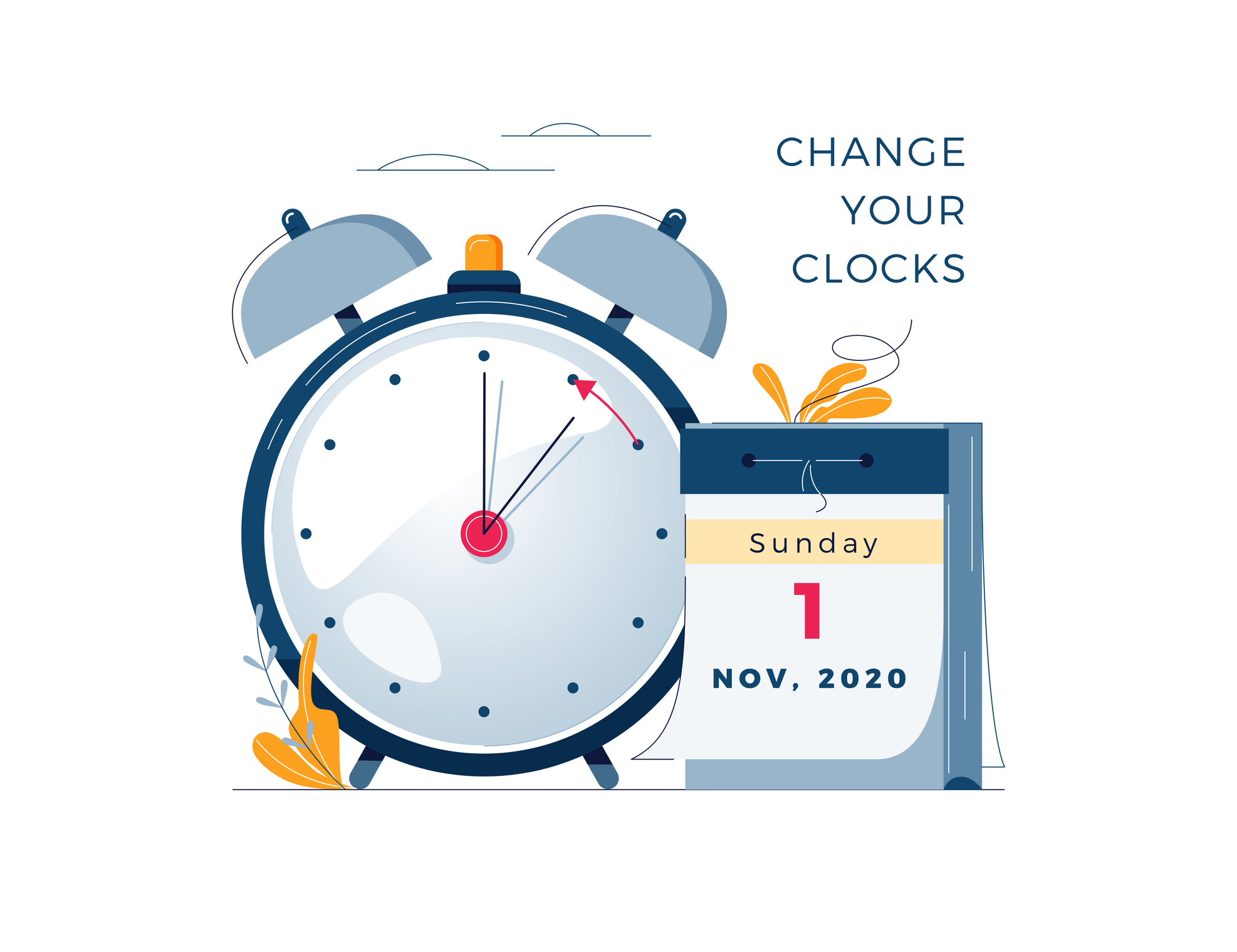October 31 2020 is a rather auspicious day on the calendar. Not only is it Halloween and a full blue hunter’s moon but it also marks the end of daylight savings time. A hunter’s moon follows the harvest moon at the beginning of the month and it historically indicates the time to stock up for winter has arrived. Although we gain an hour this week, turning the clocks back can be a difficult transition for many people.
Our bodies are naturally attuned to a circadian rhythm, following a 24-hour cycle of waking, eating, and sleeping based on the rising and setting of the sun. When we move the clocks ahead or back, the change can throw off our internal timekeeper and sometimes affect our sleep, digestion, or cardiovascular function. According to Everyday Health, recent research has found that health problems like heart attacks and accidents may increase as a result of changes to and back from daylight savings time.
To help ease the transition back to standard time and prevent illness, injury, or sleep disturbances, it’s important to spend time in natural sunlight each day. When the sun rises, consider taking your morning cup of coffee, along with a cozy blanket outdoors, or plan a daily morning walk with a neighbor to get back on track. Getting natural sunlight can help prevent seasonal depression, improve sleep, and give the immune system an vitamin D boost.
When weather prevents outdoor activities, try to at least spend time near a window or use a light therapy box that can replicate the effects of exposure to natural sunlight. Don’t forget to get regular exercise indoors or out but not too close to bedtime as it can disrupt the release of sleep-inducing hormones.
Finally, although many of our devices will automatically update clocks to standard time, it’s important to adjust any manual clocks or appliances right away. Switching clocks back before bed tonight can help make the switch easier on Sunday and for the rest of the week. Practice good sleep hygiene, turning off devices a half hour before bed, and try reading or listening to music to relax.
Learn more about good sleep habits by following this link to the American Academy of Sleep Medicine.






Add Your Voice
0 Comments
Join the Discussion